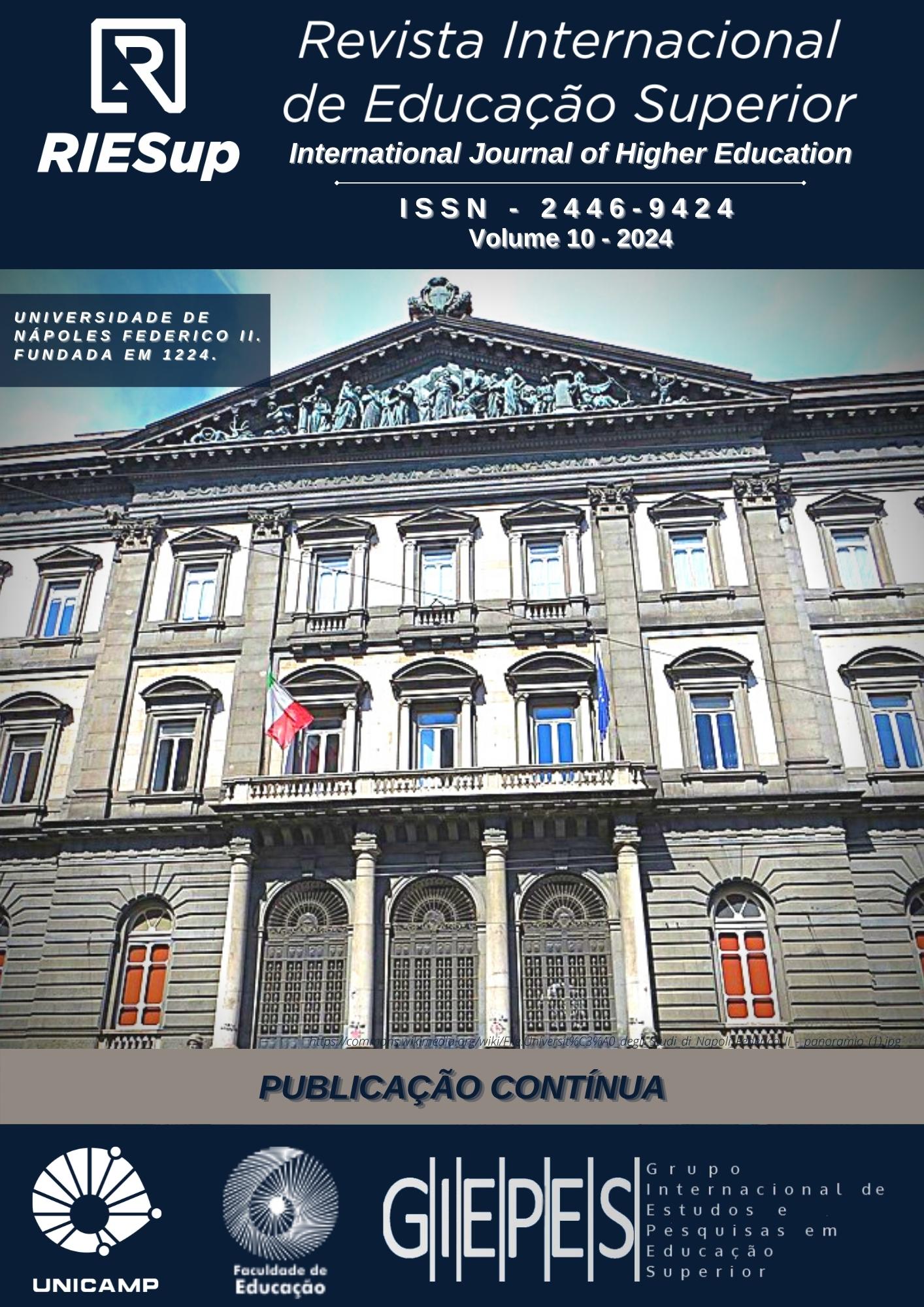Abstract
Introduction: The emergence of new Information and Communication Technologies (ICT) has contributed to the development of society in several aspects, among them, updating and professional training. Through computers and mobile devices, access to information shortens distances previously not allowed without the technology. With this evolution, people have sought to adapt to the most diverse models offered, generating an increase in access to these devices. Objective: This article is part of a research carried out in a Professional Master's course of the Teaching area in Sul Fluminense, which aims to propose the teaching qualification to work with students of higher education with Attention Deficit Hyperactivity Disorder (ADHD) through Podcast. Therefore, the present study presents partial results of the elaboration and validation of the educational product developed from research. Methodology: It is a methodological study whose stages follow the sequence of conceptual structure; narrative revision, construction of the questions and scale of answers; structuring of the instrument and validation of content by experts. The Likert Scale and the Educational Content Validation Instrument (IVCE) were adopted as methodological tools. Results: The results presented an average of the experts' responses, above 3.6 level of agreement for the product in its overall analysis. Conclusion: The IVCE proved to be a powerful tool for the analysis of the educational product, as it fits the most diverse models of educational content, demonstrating its flexibility in the division of factors to be evaluated.
References
AUSUBEL, David. Paul. A aprendizagem significativa: a teoria de David Ausubel. São Paulo: Moraes, 1982.
BRASIL. Lei 13.146 de 2015. Estatuto da Pessoa com Deficiência. Disponível em: http://www.planalto.gov.br/ccivil_03/_Ato2015-2018/2015/Lei/L13146.htm. Acesso em de agosto de 2020.
BROWN, Tim. Design Thinking: uma metodologia poderosa para decretar o fim das velhas ideias. 1 ed. Rio de Janeiro: Editora Elsevier, 2010.
CONSELHO FEDERAL DE EDUCAÇÃO – CFE (1965). Parecer n° 977/65. Definição dos BRASIL, CAPES. Documento de área 2013. Disponível em: Acesso em: 19 out 2020.
CENTRO DE ESTUDOS SOBRE AS TECNOLOGIAS DE INFORMAÇÃO E DE COMUNICAÇÃO (CETIC) Pesquisa sobre o uso das tecnologias da informação e da comunicação no Brasil. 2019. São Paulo: Comitê Gestor da Internet no Brasil.
COSTA, Francisco José. Mensuração e desenvolvimento de escalas: aplicações em administração. Rio de Janeiro: Ciência Moderna, 2011.
DECLARAÇÃO DE SALAMANCA: Sobre princípios, políticas e práticas na área das necessidades educativas especiais. Salamanca – Espanha, 1994.
FREIRE, Paulo. A educação na cidade. São Paulo: Cortez, 2001.
FREIRE, Paulo. Pedagogia da autonomia: saberes necessários à prática educativa. 50. ed. Rio de Janeiro: Paz e Terra, 2000. 165 p.
MEDEIROS, Rosana Kelly da Silva; FERREIRA JÚNIOR, Marcos Antonio; PINTO, Diana Paula de Souza Rêgo; VITOR Allyne Fortes; SANTOS,Viviane Euzébia Pereira; BARICHELLO, Elizabeth. Modelo de validação de conteúdo de Pasquali nas pesquisas em Enfermagem. Revista de Enfermagem Referência, 2015; IV(4):127-135. ISSN: 0874-0283. Disponível em: https://www.redalyc.org/articulo.oa?id=388239974007
MOREIRA, Marco Antônio. MASINI, Elcie Salazano Aprendizagem significativa: a teoria de aprendizagem de David Ausubel. 2ª ed. São Paulo: Centauro Editora, 2006.
RIZZATTI, Ivanize. Maria.; MENDONÇA, Andrea Pereira; MATTOS, Francisco; RÔÇAS, Giselle. SILVA, M. André. B. Vaz. da; CAVALCANTI, Ricardo Jorge de S.; OLIVEIRA, Rosemary Rodrigues. Os produtos e processos educacionais dos programas de pós-graduação profissionais: proposições de um grupo de colaboradores. ACTIO, Curitiba, v. 5, n. 2, p. 1-17, mai./ago. 2020. Disponível em: . Acesso em: 16 de dezembro de 2020.
ROTTA, Newra Telllechea, OHLWEILER, Lygia e RIESGO, Rudimar dos Santos. Transtornos de aprendizagem–abordagem neurobiológica e multidisciplinar. Editora: Artmed. Porto Alegre, 2006.Capítulo 9
ROTHER, Edna Terezinha. Revisão sistemática X revisão narrativa. Acta paul. Enferm 2007; 20(2):v-vi.
SILVA, Daniele Maciel Lima; CARREIRO, Flávia Araújo, MELLO Rosane. Tecnologias educacionais na assistência de enfermagem em educação em saúde: revisão integrativa. Rev enferm UFPE online. 2017;11(2):1044-51. http://dx.doi.org/10.1590/0034-7167-2017-0041
TEIXEIRA, Elizabeth; MOTA, Vera Maria Saboia Souza. Tecnologias educacionais em foco. São Paulo: Difusão Editora, 2011.
WEDEMEYER, Charles. (1981). Learning at the Back Door: Reflections on Non -Traditional Learning in the Lifespan. Wisconsin: University of Wisconsin Press - .1981.

This work is licensed under a Creative Commons Attribution 4.0 International License.
Copyright (c) 2022 Luciana Pereira Pacheco Werneck, Ivanete da Rosa Silva de Oliveira, Denise Celeste Godoy de Andrade Rodrigues



